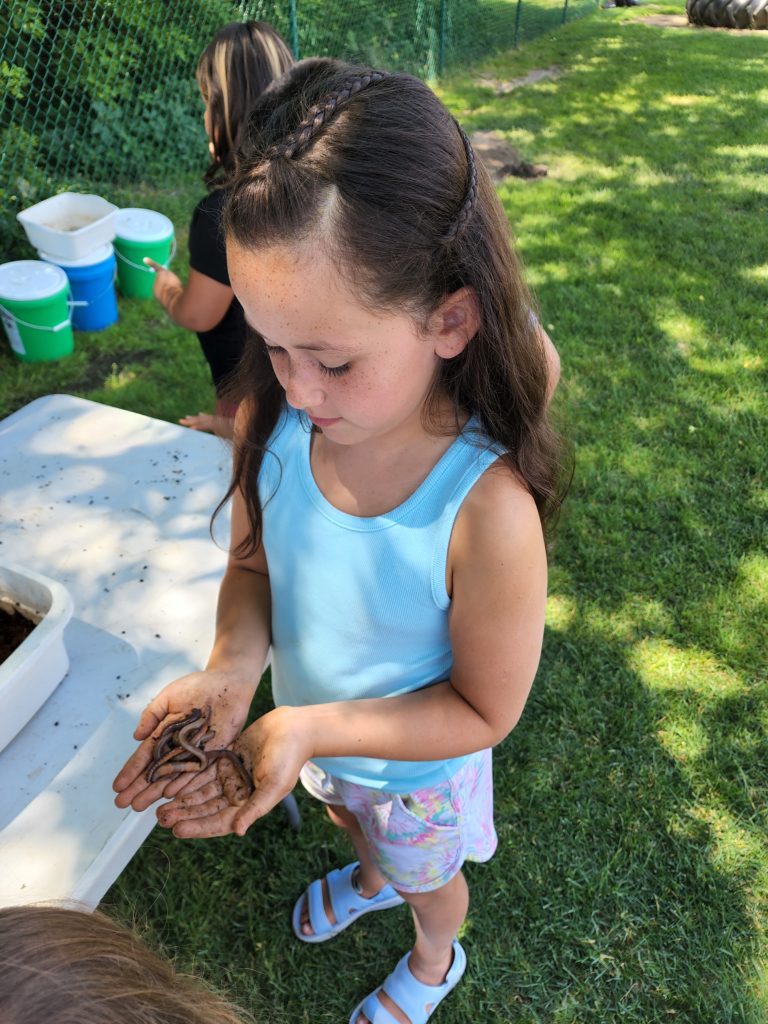Have you ever just sat back and observed a child playing? When we give children the tools, space, and encouragement, they can expert problem solvers and teachers. As someone who likes to be organized and have everything go according to plan, it is often hard for me to just sit back and not worry about the outcome. Recently I have come to realize that when I give up control of the outcome and let kids lead a planned activity, they learn so much more. In the Montessori Method of teaching, there are five main principles: 1) respect for the child 2) absorbent mind 3) sensitive periods 4) a prepared environment 5) auto education. This month I want to focus on the first principle: respect for the child.
I was recently teaching a group of young students about soil texture. I had three tubs one with sand, one with clay, and one with a loamy soil. I asked the students to observe with their eyes first and then they observed by feeling it with their hands. When I asked what they noticed they were spot on in telling the difference by color, feel, and particle sizes. Then, to my surprise, a student scooped up some soil from the ground and started analyzing the texture comparing it to the other samples.
As adults, we often forget that children (even infants) are just tiny humans that have thoughts, feelings, and the capacity to be genius. Although their brains are still growing, we can foster maturation by giving them the space to have individual thoughts and feelings and guide them through them. Respecting a child is shown through freedom to make their own choices, doing things for themselves, learning for themselves, and not interrupting their concentration. When we see a child struggle with an everyday task, such as putting on shoes, we want to rush in and do it for them. If we give them the space to do it on their own, they may show us that they can solve the problem for themselves. Respecting a child means that we trust them to make their own decisions (within reason). Respect builds a relationship, which can lead to understanding and more learning.
